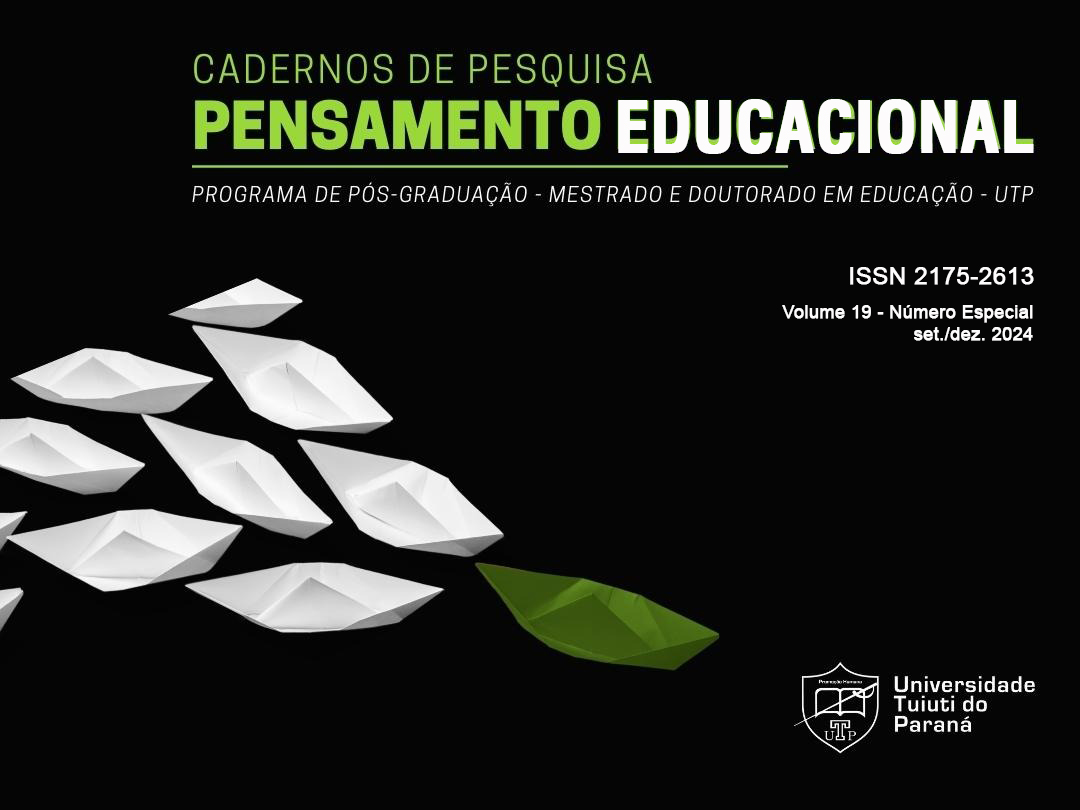Breves considerações sobre a Constituição Federal de 1988 e os movimentos econômicos da década de noventa no surgimento do Programa do REUNI, implementado em uma universidade federal brasileira
Resumo
O objeto de estudo para este artigo são as políticas do REUNI e do PNAES, implementadas durante a gestão de Lula da Silva, no recorte temporal de 2003 a 2011, cujo intuito eram a reestruturação da estrutura física das instituições federais de educação e, dentre outros, a redução da evasão universitária. Contudo, estas políticas foram implementadas por meio de decretos, no início dos anos dois mil (2007 e 2010, respectivamente), e inevitavelmente estavam expostas aos direcionamentos e imperialismo neoliberais, reinantes durante a década de noventa. Elencou-se, como objetivo geral, desvelar as contradições presentes em tais políticas. O caminho metodológico foi baseado em pesquisas bibliográficas e em dados estatísticos do Ministério da Educação e do INEP, bem como foram extraídos dados de Relatórios de Prestação de Contas e de Gestão de uma universidade federal, a qual foi eleita como paradigma para se estudar a implementação destas políticas públicas. Por meio de uma breve análise dos atos normativos regulamentadores da matéria de reestruturação das universidades federais do país, e do Método do Materialismo Histórico-Dialético, verificou-se, que, apesar de as universidades aderirem a tais políticas, estas foram impostas às instituições, comprometendo a tão necessária autonomia universitária. Em termos institucionais, apesar de terem proporcionado bons resultados quanto a expansão do número de vagas públicas, ainda são limitadas quanto à efetividade na permanência discente e na redução efetiva da evasão universitária. Neste sentido, espera-se que este artigo possa contribuir no debate para a necessária democratização do acesso à educação superior pública, e em ferramentas para combater a evasão universitária.
Copyright (c) 2024 Camila Capucho Cury Mendes

This work is licensed under a Creative Commons Attribution-NonCommercial 4.0 International License.
- Autores mantém os direitos autorais e concedem à revista o direito de primeira publicação, com o trabalho simultaneamente licenciado sob a Licença Creative Commons* que permite o compartilhamento do trabalho com reconhecimento da autoria e publicação inicial nesta revista.
- Autores têm autorização para assumir contratos adicionais separadamente, para distribuição não-exclusiva da versão do trabalho publicada nesta revista (ex.: publicar em repositório institucional ou como capítulo de livro), com reconhecimento de autoria e publicação inicial nesta revista.
- Autores têm permissão e são estimulados a publicar e distribuir seu trabalho online (ex.: em repositórios institucionais ou na sua página pessoal) a qualquer ponto antes ou durante o processo editorial, já que isso pode gerar alterações produtivas, bem como aumentar o impacto e a citação do trabalho publicado (Veja O Efeito do Acesso Livre).
- Esta revista proporciona acesso público a todo o seu conteúdo, uma vez que isso permite uma maior visibilidade e alcance dos artigos e resenhas publicados. Para maiores informações sobre esta abordagem, visite Public Knowledge Project.

*Esta obra está licenciado com uma Licença Creative Commons Atribuição-NãoComercial 4.0 Internacional.


